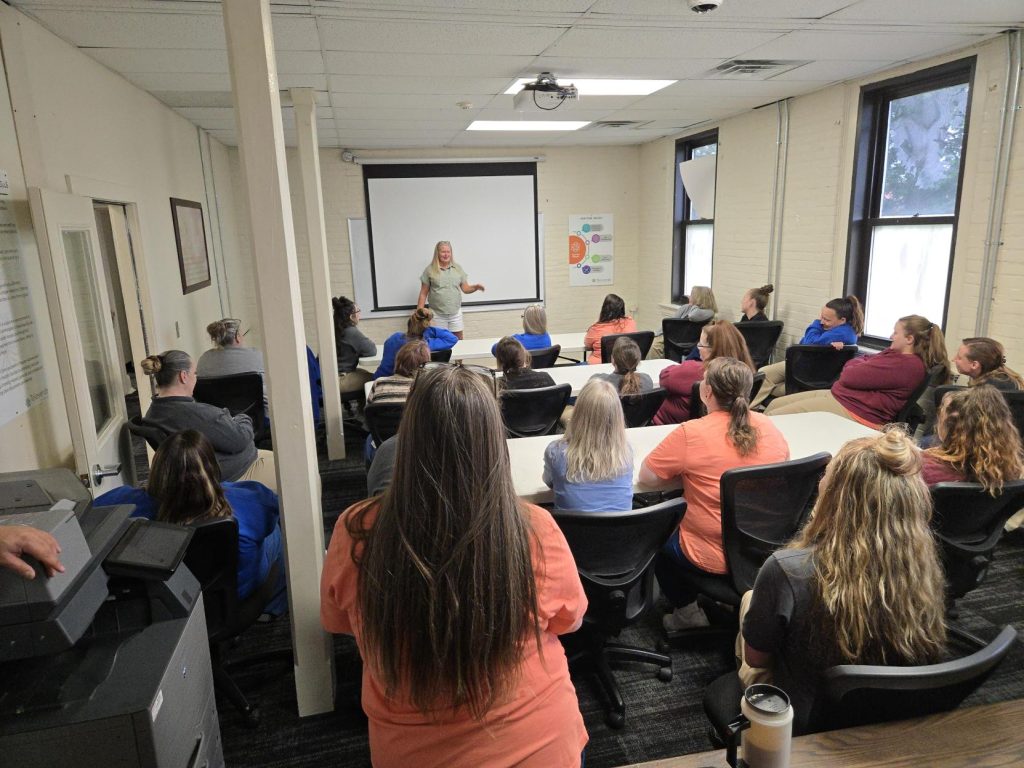Creating Freedom Through Work: The Power of Second Chances

When Vince Barsolo, CEO of Televerde, visited the Madison call center where I am currently employed and incarcerated, he brought along someone who used to serve time with me. Today, she’s free and still working with Televerde, using the skills she gained during her time inside. She said something that landed like truth in my bones:
“Money is freedom. I can buy anything I want.”
At first, it might sound simple or even shallow. But when you’ve lived years without freedom, choices, and money, you understand exactly what she meant.
Inside prison, most jobs pay pennies an hour — quarters if you’re lucky. A single phone call to family can cost more than a week of labor. Financial literacy doesn’t mean much when your paycheck doesn’t even cover the essentials. That’s why Televerde’s model matters. Here, the world opens up. We see women step into professional roles, earn real paychecks, and hold ourselves to the same standards as anyone working outside.
For me, the appeal isn’t just the paycheck but the growth. I’m learning to communicate with people outside of incarceration without seeing them only as authority figures. I’m building digital literacy and professional confidence. And the tangible reality matters too: Going from cents to dollars changes everything. It means I can buy small comforts, send money home, or simply feel like a human being making choices again. Money matters not because it buys luxury but because it buys dignity.
Through Televerde, I’m building skills in sales, marketing, customer service, and business development — skills that carry weight when I go home. The Televerde Foundation extends that opportunity even further, preparing women across Arizona and Indiana for reentry with training in career readiness, technology, financial literacy, and personal development. I’ve seen firsthand how these programs equip women to rebuild their lives, connect with second-chance employers, and grow into success stories.
Poverty and incarceration are tied together in ways most people don’t see. Before prison, people had a median annual income of just $19,185 — 41% less than their nonincarcerated peers. Nearly half reported having no income at all. And after release, the barriers don’t end: Unemployment is five times higher than average, and for women, it’s nearly 38%. For those who find work, it’s often in the lowest-paying, least stable jobs. That’s why opportunity matters. Why a paycheck matters. Why my colleague’s statement is so powerful: Money is freedom, especially when you’ve lived without it.
I’ve watched women go from making cents an hour to supporting their families with a salary. I’ve seen mothers reunite with children and women open bank accounts for the first time. Some women buy a car, sign a lease, or take their kids out for ice cream without counting every dollar. Each of those moments is a kind of freedom. And that freedom ripples outward to kids, parents, partners, and communities. When one person finds stability, everyone around them feels it.
I don’t want this story to be told only in corporate language or statistics. I want it to be shared in human terms. For me, and for the women beside me, this isn’t just about a job. It’s about no longer being defined only by our incarceration. It’s about finally being able to choose our future.
And make no mistake: This isn’t a handout. We earn it every single day. We prove ourselves to clients, our managers, and each other. If we don’t, the opportunity disappears. That pressure is real, but it’s also what makes us strong. It means the work we produce is work you can trust.
That’s why I want people to partner with us. You won’t find a harder-working group of women than those fighting to rebuild their lives. We know what’s at stake, and we don’t take a single opportunity for granted.
So when my colleague said, “Money is freedom,” she was naming something most people on the outside forget: Freedom isn’t abstract. It’s built on the ability to support yourself and your family. Without that very real fact — without the means to live — the carceral system never leaves your life.
Opportunity means we can return home not as burdens but as contributors. That’s what real freedom feels like.
Written by Natalie Medley, Marketing Support Coordinator for Televerde Foundation, currently employed through the Televerde call center in Madison, Indiana.
